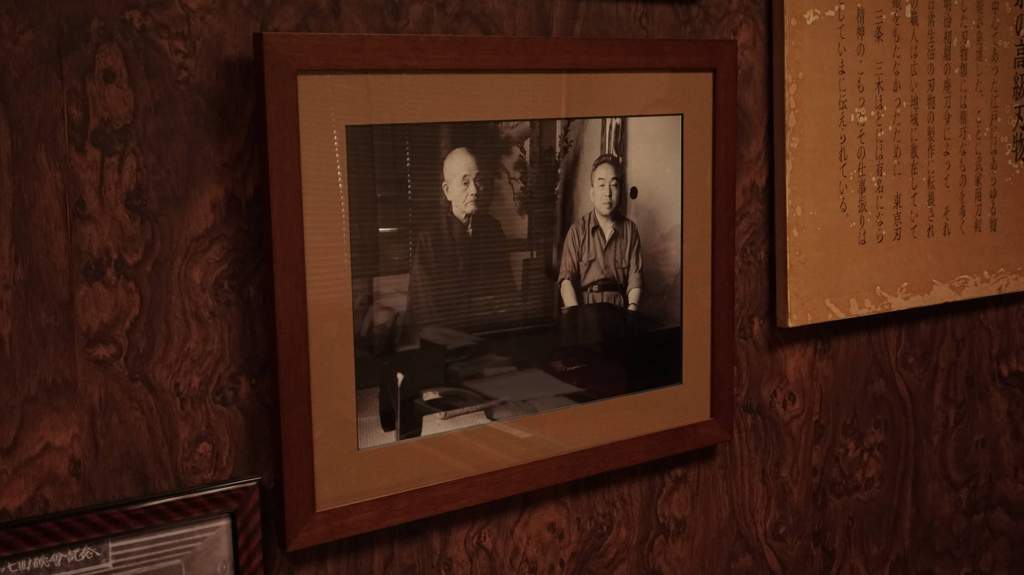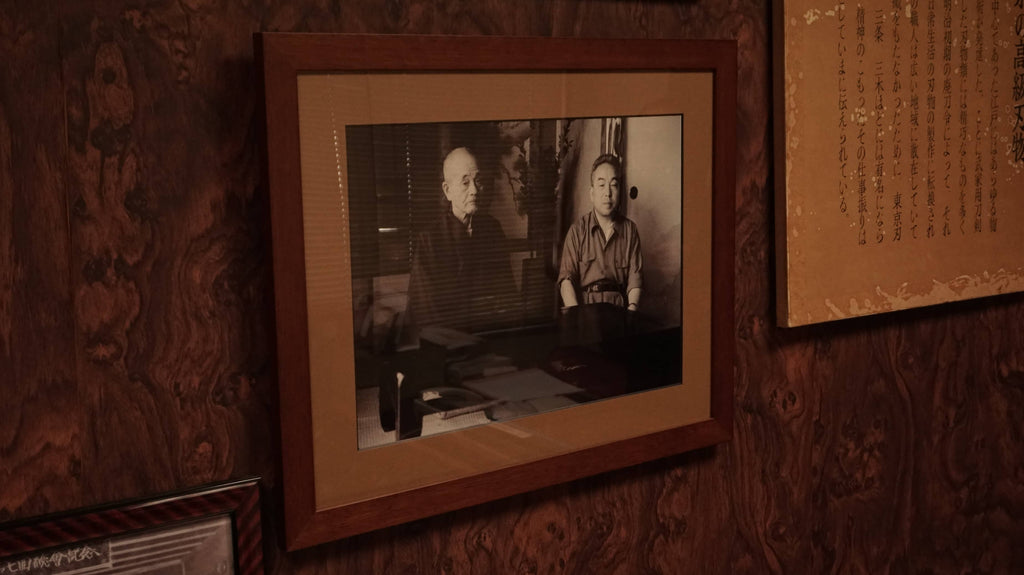
Sakai, Sanjo, Echizen, Seki and Miki - these are places known for kitchen knife production in Japan. Sakai is best known for making 90% of Japan’s single bevel knives. But did you know that there were also many bladesmiths in Tokyo before? When speaking to anyone of that particular era in Japan, they will always remember the sounds of forging throughout Tokyo every day.

During the Edo period, Ieyasu Tokugawa, the head of the Edo Shogunate wanted to build a strong trade community where Edo would be filled with master craftsmen. As a result, Kajiya-cho (Blacksmith Village) was built, which is present-day Kanda district in Tokyo. Edo City was known for street fights and fires, so when fire broke out, the skilled blacksmiths would be responsible for creating the fine tools that the woodworkers would use to rebuild the damaged structures. After the Meiji period, swords were prohibited. Many swordsmiths were not able to find much work, so they turned to forging woodworking tools, farm tools and kitchen knives. Since Edo City was established, this tiny geographical space called Tokyo had one of the largest populations in the world, which resulted in many tight-knit communities. The communication between users and makers were a common part of every day, the gap between them was very small, if any. Any complaints about the tools by the users would quickly get back to the tool makers, which then resulted in many legendary blacksmiths, such as Chiyotsuru-Korehide (千代鶴是秀) and Ishido.
Chiyotsuru-Korehide with the Previous president of Morihei
Around 20 years after the end of World War II, Japan experienced a period of high economic and population growth. The sounds of forging became less welcomed in the streets and many blacksmiths had to move out of the city. Today, blacksmiths in and around Tokyo are rare, but a number still reside around the area, in cities like Saitama, Yamanashi and Chiba. When the city blacksmiths dispersed, they lost the union that they once had. Their work remains well respected, however and their history should be credited for putting Tokyo on the map for well-made forged tools.


Population is getting higher in Tokyo
Morihei has been a knife and whetstone supplier for more than 100 years. They are one of the few companies left in Japan with a long-standing history of relationships with blacksmiths and whetstone and natural stone makers that has been maintained to this day. At one time, more than 20 groups of blacksmiths and sharpeners worked under the name Morihei. When some of the blacksmiths decided to resign, Morihei asked them to make a large number of knives before they left, for those original Morihei’s customers who may wish to continue to use those same knives.
Craftsman used to work for Morihei
There is now a limited stock of those knives at Morihei who kept them safely in storage for the past 20 years. These are the final pieces from the blacksmiths in Tokyo from the Edo period. Each knife is stamped with the engraving Tokyo (東京). We are not sure how much longer we will have Tokyo-Made knives to sell, but we hope that each one will go to someone with a heartfelt sense of care for these knives.
Morihei
TEL:03-3862-0506 FAX:03-3861-0377
Business hours:10:00 - 17:45 (Weelend and holidays close)




